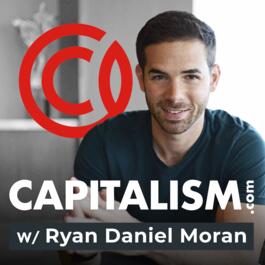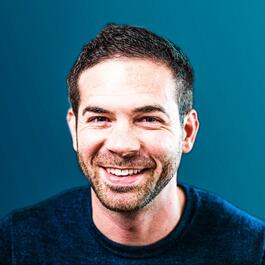
Buying Businesses: How Carl Allen Acquires Profitable Companies (With Other People's Money) #TheOnePercent
Carl Allen is a U.K. based business buyer specializing in leveraged buyouts (LBO). Over 26 years he has perfected a proprietary methodology for buying business without using any of his own money. Today he shares how to find deals, what he looks for how he structures them so that the businesses he buys are not dependent on him, and how he sleeps with all of this overhead! Key takeaways [1:47] Ryan is fascinated by this since it's kind of his goal for the future: he is currently building the infrastructure for entrepreneurs to be able to launch brands within his sphere of influence. What kind of businesses? [7:00] Carl became the leverage buyouts guy, which was an alternative to building his own business. Sweet spot: businesses with revenue in the 1 to 5 mil range. Below that you will find that the owner and the business are the same! And above 5 you have a lot of competition. Some sectors do better than others: IT, engineering, manufacturing, professional services, etc. but ultimately if you're new to this, buy a business that you understand. Seller psychology [12:38] Carl's method looks for in a particular type of owner: highly motivated to leave the business — you can craft a more human deal, psychology is key! Carl touches on a key aspect of the owner perspective: they want someone who is going to care for their loyal employees and customers, someone who will take the business to the next level but preserve the legacy A classic LBO structure [13:36] A big part of the LBO strategy is that the sellers do want some money but it can be paid overtime with the business profits. Let's posit a business with a million dollars in revenue and a couple thousand dollars in free cash flow. 5k to buy with the following structure: 200k at closing — which you finance through debt based financing, SPA or asset based lending — and 100k a year for 3 years off the profits. Beware deal heat [16:40] Are there andy asset purchases that keep Carl up at night? Yes, but if you do If you do your due diligence and target the following traits in the businesses you buy, it should reduce that amount significantly: 1. Find businesses that do little to no marketing, so you can come in, do it and ramp up revenues! 2. Businesses older than 10 years tend to get bloated with overhead, you can take this off at the start. [19:19] Beware of deal heat! Go look at 20 deals, pick 4 or 5 you like best and play them off against each other. Always play the numbers game. Finding a deal [20:35] brokers are the usual first step for newbies, the problem with brokers is that they will generally overvalue the business to get a better fee. The real way Carl finds deals is with events, networking but also social media marketing! He explains why. First things first [26:04] Once the business is acquired, what do you do to increase cash flow? In the first 6-9 months: 1. Get a management team or a GM in the business 2. Look at the overhead base 3. Drive marketing (direct sales people) 4. Strategic joint ventures may come into play Choosing a GM [28:51] How do you choose those managers?! It's integrated into the deal: the best place to find a GM is usually within the business: 1. Look for businesses with a solid number two and promote from within. 2. Find someone in your network. 3. In some cases the owner will stay on and GM for you, Carl explains how the type of owner you meet can dictate if this happens: people are good and love doing different things. (Set the founder free!!!) [34:00] How did Carl come to understand all this? He shares his journey from HP and buying big software companies, to leaving the corporate world and stumbling into his very emotional first ever buyout — around which his entire process was built. Work with people [39:55] Carl run an entire business that buys businesses, what is the infrastructure that controls infrastructure. The whole infrastructure is the due diligence and deal, Carl then relies on a strong CEO that he gets by way of a promoted number 2, the existing owner or someone from his network: Carl's training and mentoring business was meant to generate partnered deal flow, working with people is the key to reducing the amount of work you have to do. [44:48] What does Carl look for in a deal and what should be avoided. Avoid: a cash out; B to C businesses typically doesn't have a lot of asset; Amazon doesn't give you control over the customer... Look for the deal making triad: 1. Deals that serve you in some way (do you like the sector, or is there a value add for another business you own?) 2. Always bet on seller psychology. 3. Will this work for an LBO and is there a strong number 2. [49:37] Ryan wants to buy the Cleveland Indians, what is Carl's guiding light? And considering he does his deals with other people's money, where does he put his own!? [53:20] Where do people find more of the Carl Allen sweet sauce? Carl has put together a 90 minute masterclass for Ryan's tribe at: ninjaacquisitions.com/capital Mentioned in this episode 8 figure exits: Capitalism.com/8
From "Capitalism.com with Ryan Daniel Moran"




Comments
Add comment Feedback